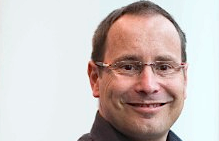Edinburgh-based travel search engine Skyscanner said on Friday its revenue rose 28% to £120 million in 2015 as mobile platform bookings helped it continue its global growth.
Skyscanner said its gross 2015 bookings were $11.2 billion, up 49% on 2014.
“2015 was another strong year for Skyscanner, showing solid progress in our strategy of expansion beyond our home market, into mobile and beyond flights,” said Gareth Williams, Skyscanner CEO and co-founder.
“Our first-half focus on investing in our product drove momentum for the business in the second half.
“We also saw excellent growth in travellers planning their trips on Skyscanner all around the world, especially on mobile and in the important regions of Asia Pacific and the Americas.
“Skyscanner’s global coverage, our direct relationships with partners and travellers and the self-built technology that underpins our success, account for our solid performance in 2015.”
Visitors to Skyscanner in 2015 grew 48%, with a record 50 million monthly visitors.
Mobile visitors grew 60% and now represent 59% of total visitors.
“Increasingly, travellers are looking not just to plan, but also to book from a Skyscanner mobile platform — mobile web bookings grew by 24% year on year, comprising 42% of all conversions,” said Skyscanner in a statement.
“The Asia Pacific region continued to show strong growth, with visitors increasing 48% last year. Mobile visitors grew 62% year over year. This includes Japan, the third largest travel market in the world where Skyscanner and Yahoo! JAPAN established a new joint venture, Skyscanner Japan, in July.
“In China, a focus for Skyscanner since the acquisition of Youbibi in 2014, visitors grew 67% and mobile visitors nearly doubled.
“The Americas region saw 55% growth in visitors last year, more than doubling in the U.S. mobile visitors in the region nearly doubled …
“Visitors in Europe grew 42%, with mobile visitors growing 55%.”
Skyscanner opened two new offices last year, engineering hubs in London and Sofia, in addition to the expansion of existing spaces in Budapest and Miami.
The company now employs 770 people around the world.
